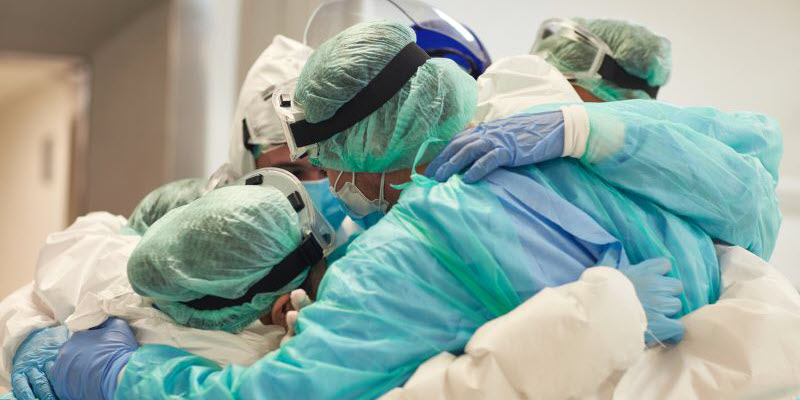| By Melinda G. Oberleitner, DNS, RN, FAAN |
Health care in the United States continues to grapple with shortages of nurses, physicians, and other health-care professionals. As of early 2023, the need is acute for registered nurses (RNs) and home health-care aides. Other professions experiencing or predicted to experience shortages include nurse practitioners (NPs), psychiatric and mental health providers, dentists, dental hygienists, and a variety of therapists and technologists. Although shortages in several health-care-related disciplines are long-standing, the COVID-19 pandemic exacerbated existing ones.
Causes are many, and include stressors associated with the professional demands of health-care jobs, health-care worker burnout due to working in perennially short-staffed hospitals, increasing use of temporary staffers who command higher wages, low pay when compared to other comparable professions, qualified health professionals’ educator shortages, increase in violence perpetrated in health-care institutions against workers, limited space in clinical settings for increasing the student pipeline, and the rising average age of health professionals currently in the workforce. In addition, many health-care workers left their positions during the pandemic by retiring early or transitioning to a different profession entirely. Another factor driving demand is the increasing median age of the U.S. population. As people live longer, they experience more chronic health conditions, which increases the need to access services provided by health-care professionals. Shortages of health-care providers are particularly prevalent in rural and underserved areas.
The shortage of RNs in the United States is extreme. One estimate forecasts a shortage of over 450,000 RNs to meet expected demand now and into the near future. These numbers expose the vulnerability of our health-care system, and have received the attention of legislators at the federal and state levels. As of February 2023, U.S. senators were conducting hearings to discuss potential federal government solutions to the crisis, including expanding loan forgiveness programs for those agreeing to work in health profession shortage areas after graduation.
Health-care educators, administrators, and legislators in some states have already joined forces to implement innovative programs to address shortages in their states. In early January 2023, Florida’s governor announced $79 million to expand nursing education and health-care partnerships in that state. In Louisiana, the legislature funds significant tuition support through a collaboration between the Board of Regents and public-private universities for nurses with bachelor’s degrees who are prepared to earn master’s degrees and for nurses with master’s degrees to earn the doctoral credential in nursing in exchange for working full time as a faculty member in a nursing education program in the state upon graduation. Hawaii and Maryland provide income tax credits for health-care professionals who agree to serve as qualified preceptors for students enrolled in health professions. A comparable bill was filed in the Rhode Island legislature in early 2023.
While there’s finally increased attention on expanding the workforce pipeline for RNs and other health professionals, a similar focus must be directed to retention and improving job satisfaction. Higher pay, better support for life-work balance, and more reasonable workloads that contribute to higher-quality patient care are all important factors in improving retention rates.
Newly published, The Gale Encyclopedia of Nursing and Allied Health, 5th edition, covers not only all the topics mentioned above concerning health-care professionals, including the nursing shortage, nurse burnout, health-care worker violence protection legislation, and nurse educators, but also nursing and allied health topics to inform students looking at nursing and allied health professions as career options and those who are in the midst of their education journey.
About the Author
A pioneer and award-winning oncology nurse, Melinda Oberleitner is a long-standing member of the Oncology Nursing Society (ONS). She was named the recipient of the national Oncology Certified Nurse of the Year Award by ONS and the Oncology Nursing Certification Corporation. She also received the American Cancer Society, Louisiana Division, Public Education Lifesaver Award.


